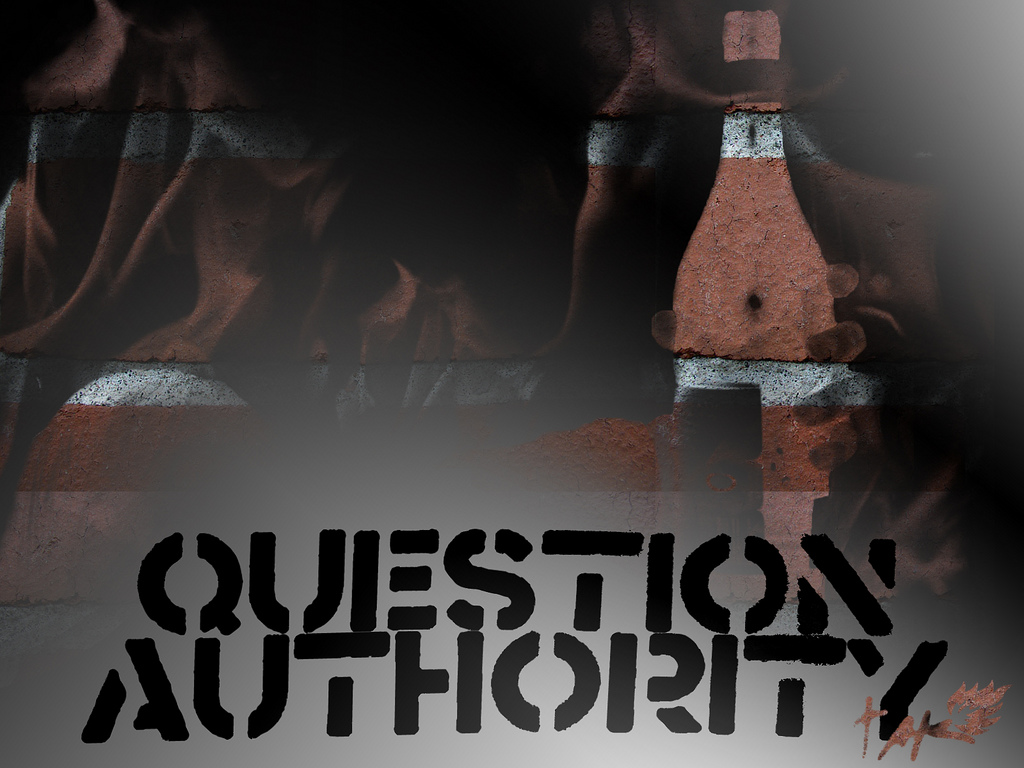Written by Republic of Zen.
An “authority” usual means a person or organisation which has command over a particular subject; or in command of a nation, state or government. In situations submitting to an authority can be mutually beneficial for the individual. Example: the student submitting to the authority of their lecturer in order to gain knowledge or submitting to will of fireman in order to escape a fire. In some situations it may not be beneficial to the individual; like a police person marching a Jewish person, homosexual or marijuana enthusiast into a prison for any irrational purpose. In this manner we can divide the subject of authority into two categories; productive authority and counter-productive authority.
But who decides what is or is not productive for the individual? Socialist or capitalist theorists? Perhaps it is best to leave to the individual under the authority to decide for them selves whether or not it is productive for them to be under a certain kind of authority. A consensual relationship between the authority and the individual would mean that the individual can leave the authorities influence whenever they deem it to be counter-productive.
The exact origin of the English word authority is debatable. The root word could possibly be “author”, meaning the creator of the subject. So if one uses ones labour to create a product, then one has the true authority over that property. If a teacher creates class, then that teacher has authority over that class. If a business man creates a business then he has the authority over that business. A worker has complete ownership over the product of their labour, thus has to contract it to who ever they wish at any price be it high or low.
From a religious perspective the emphasis on the creator makes sense. If man was created by a god, than that god has an authority over man and not other men over that man. Men should not create laws over other men or command them in anyway without consent. Slavery therefore cannot be valid on the basis than no man or woman has ever created another man or woman. Parents create a family and a child, but the child develops quickly and replaces their body’s cells with new cells, thus parents have a limited authority over their child until they can fully express self authority.
Interestingly enough the words “authorised” and “authority” have the same root word. With this connection it is almost if one wants to have a command over an individual, the individual does need to agree it in it in the first place. Since no man can assume authority over another man, it makes sense that authority needs to be authorised by the individual.
So we can conclude that authority can be divided into two logical categories from an objective manner based on the idea that a product or activity is owned by the individual; there is a “true authority” and a “false authority.”
A true authority is defined as:
- A person who has created a product or service thus owns and controls that product or service.
- A person whose authority has been consent by an individual on whom their authority lies.
- A parent of another individual whose authority is limited until the child individual can assert their own self authority.
A false authority is defined as a person who falsely claims authority over an object or an individual.




